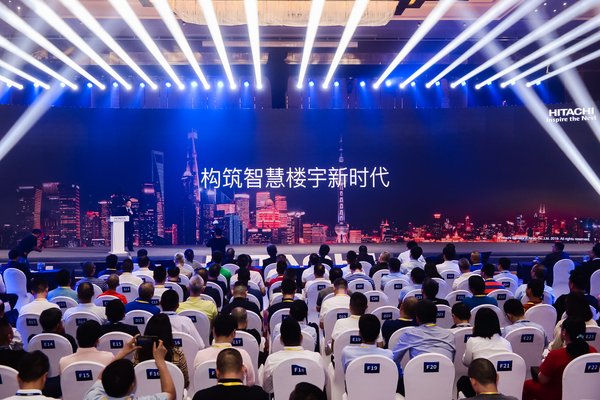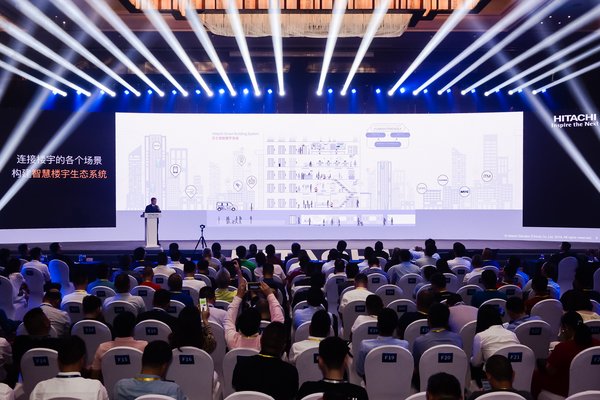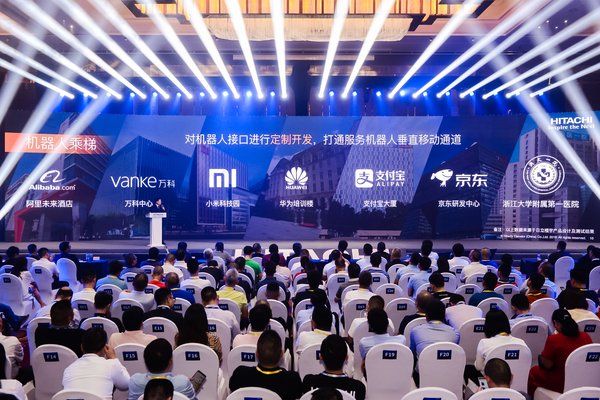Hitachi Elevator's integrated building management system creates a new smart building-based lifestyle experience
KUNMING,China,July 22,2019 -- The elevator-based smart building ecosystem is emerging as elevators become a gateway to various application scenarios in modern buildings as we enter an era characterized by a fast-evolving digitized urban lifestyle. On July 3,Hitachi Elevator (China) Co.,Ltd. ("Hitachi Elevator") delivered a detailed presentation on its efforts in exploring next-generation smart buildings during the 2019 Innovation Sharing Meeting.

Elevator’s integrated building management system heralds the entry into the smart building era
Almost everyone feels some frustration when they ride elevator,whether it be waiting too long for the elevator to arrive or not being able to board because the elevator is already full. Whether an office worker or a resident,those who must take elevators hope that such "traffic jams" can be avoided,while property managers are increasingly eager tomanage the security system,energy and equipment in a building efficiently. Both expectations can be met with the support of the smart building ecosystem being built by Hitachi Elevator.
Hitachi Elevator is committed to establishing a smart building ecosystem by combining big data,IoT and AI,among other leading technologies,with the aim of providing a wide range of buildings with custom-designed multi-directional in-building transportation solutions and creating high added-value intelligent products and services for more in-building elevator scenarios.

Various scenarios for Hitachi Elevator’s integrated building management system to connecting buildings
Hitachi Building Technology (Guangzhou) Co.,Ltd. general manager Guo Weiwen envisions a future where a building manager has constant access to data on the operation of the elevators,the movement of people,and the status of the equipment in the building against the backdrop of the building layout,and to be able to do so while seated in front of a PC or,while moving about,on a mobile device. AI helps to analyze wait times,level of congestion and the number of people waiting for elevator,and use the information to decide which of six custom elevator operation modes to deploy,including peak traffic and nighttime nonstop modes. An AI-based recognition camera monitors the operation of elevators in real time,in addition to providing an instant alert when an elevator stops functioning or passengers become trapped or get into an altercation while in elevator,among other unexpected situations.
With the rapid development of robotics around the world,the demand for robots that are able to move vertically is also increasing. In order to respond to this demand,Hitachi Elevator has developed customized robot interfaces and become one of the first companies in the elevator industry to create scenarios that allow for the vertical movement of service robots. The solution is suitable for many kinds of such robots,as among them,meal delivery,people guides and freight handling. Currently,Hitachi Elevator has completed the implementation of scenarios for service robots in seven locations: Alibaba Future Hotel,Vanke Center,Xiaomi Science and Technology Park,Huawei Songshan Lake Base Training Building,Alipay Building,JD.com headquarters Base R&D Center and theFirstAffiliatedHospitalofZhejiangUniversity. Another 13 projects involving hotels,office buildings and factories,among other scenarios,are also in progress. Hitachi Elevator has agreed on protocols for robot docking with many robotics manufacturers and participated in the formulation of robot interface standards for the industry.

Hitachi Elevator customizes robot interface
Facing the opportunities and challenges brought about by the development of 5G technology and the Internet of things,Hitachi Elevator also works with its partners to create solutions that allow for the interaction between elevators and other equipments in buildings.
Hitachi Elevator,in cooperation with Tencent,is supplying "pressure-free move" transportation solutions to Shanghai-based Lingang Group's Hero land project located in China-Israel (Shanghai) Innovation Park in Taopu,a town in the northwest section of Putuo district,Shanghai.The solutions assure less than 1 second in dispatching time,50% more transportation capacity and 10% less energy consumption. By integrating Hitachi's smart elevator systems into Tencent Welink's intelligent visualization platform,the solutions extend intelligence from elevators to more application scenarios.
The rapid development of 5G is expected togenerate a wave of industry-wide digitization development in the next few years. Hitachi Elevator president Jia Yuhuisaid at the sharing meeting: "We will continue the transformation into digital enterprises and accelerate the interconnection of intelligent building equipment and elevator big data."
photo-https://photos.prnasia.com/prnh/20190719/2529404-1-a?lang=0
photo-https://photos.prnasia.com/prnh/20190719/2529404-1-b?lang=0
photo-https://photos.prnasia.com/prnh/20190719/2529404-1-c?lang=0